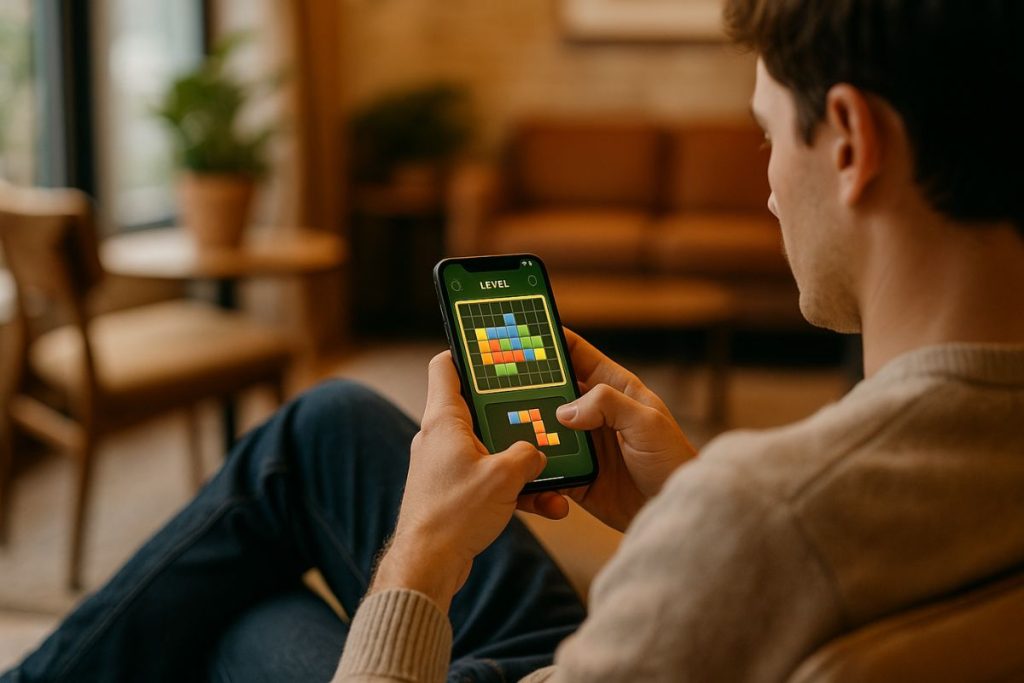Time-killer Games With Cognitive Benefits

Everyone needs a break sometimes. Whether you’re waiting for a meeting to start, taking a breather between study sessions, or just winding down before bed, short games on your phone or browser can help pass the time. But not all games are mindless distractions. Some of them actually give your brain a little workout. Games like 2048 Unblocked aren’t just fun—they also challenge your memory, logic, and problem-solving skills.
Instead of feeling guilty for playing during your downtime, think of it as a mini mental boost. A few minutes here and there with the right games can sharpen your thinking and improve your focus over time. And the best part? You don’t need to schedule it or turn it into a chore. These games fit easily into your day.
What You’ll Get From This Article
Here’s a quick overview of what this article covers:
- How certain short games can improve brain function
- Specific types of games that target memory, logic, or attention
- Why mixing fun with function matters
- How to make casual play part of a healthy routine
These aren’t just games—they’re tools you can enjoy without pressure, while still doing your brain a favor.
Why Game Breaks Actually Help You Focus
We’ve all heard the advice to take breaks. But scrolling endlessly on social media doesn’t always help your brain rest or recharge. In fact, it can sometimes leave you more drained.
Playing short, structured games provides a different kind of break. Instead of passive scrolling, your brain stays active—but in a fun way. You’re solving puzzles, planning moves, or testing your reaction speed. This light stimulation helps reset your mental focus and can make it easier to return to work or study afterward.
Short game breaks also give your mind a break from stress. Games don’t judge. You can win or lose, close the app, and carry on without consequences. That kind of freedom can help reduce anxiety and clear your mental space.
Puzzle Games That Train Your Brain
Puzzle games are great for logic and strategy. They make you think about the next step, not just the one in front of you. 2048 unblocked is a good example. It looks simple—you combine numbered tiles to reach 2048—but the game quietly trains you to plan ahead, recognize patterns, and make choices quickly.
Games like Sudoku, Threes, or even Tetris work the same way. They build spatial awareness, decision-making, and the ability to recognize systems. And since they don’t require long instructions, they’re perfect for quick breaks.
The nice thing about puzzle games is that they meet you where you are. Play for five minutes or twenty. Either way, your brain still benefits.
Word Games That Boost Vocabulary and Focus
If you love language or want to sharpen your thinking, word games are a solid pick. Daily crossword puzzles, Wordle, or word association apps get you thinking about spelling, memory, and language patterns.
These games don’t just help with vocabulary—they also build attention to detail. Finding that one missing word takes focus. It’s a quiet challenge that trains your brain to stay locked in, even when distractions are around.
You don’t need to aim for big wins. Just playing a little each day keeps your mind tuned and helps with clarity in writing, speaking, and remembering things.
Memory Games That Improve Recall
Games that test your memory aren’t just for kids. Adults benefit from them too—especially during busy days when everything seems to blur together.
Matching games, card flip games, or apps like Lumosity and Peak offer short memory tests. They train you to notice details, remember patterns, and hold on to information longer.
These small exercises make a difference. After playing regularly, you may find yourself remembering names, numbers, or even where you left your keys with a little more ease.
Strategy Games That Strengthen Planning
Short strategy games train your brain to think ahead. Even if you’re only playing a few rounds, you’re working on decision-making, resource management, and adjusting when plans change.
Games like Mini Metro, Plants vs. Zombies, or chess apps offer fun challenges that require thought but don’t eat up hours of your time. They also help you stay calm under pressure—something useful in work, school, or just daily life.
It’s not about winning every time. It’s about staying mentally flexible and practicing smart thinking in a low-stakes way.
Reflex Games That Improve Speed and Focus
Fast-tap games or reaction-based apps aren’t just for quick laughs. They train your brain to react faster, process information quickly, and sharpen attention.
Apps like Stack, Fruit Ninja, or fast-paced rhythm games help improve hand-eye coordination and timing. They may seem silly, but that’s part of what makes them effective. You stay relaxed while your brain stays sharp.
If you struggle with staying focused during the day, a few minutes of these games can give you a reset that’s both fun and functional.
Making Games Part of a Healthy Routine
You don’t have to carve out hours or feel bad about quick play sessions. The goal isn’t to win big—it’s to engage your brain in ways that support your thinking, focus, and memory.
The best approach is to treat these games like mental snacks. You don’t need them all day, but a few bites now and then can help keep your brain feeling steady.
Use game time as a reward between tasks or as a short break when you start to lose steam. That way, you turn a “time-killer” into something that adds a little energy back to your day.
A Healthy Balance of Fun and Focus
Short games can be more than just distractions. With the right picks, you’re giving your brain a light challenge that keeps it active and engaged. Whether it’s matching numbers, solving word puzzles, or tapping quickly to a beat, these moments of play can bring real benefits.
So next time you open a game during your break, know that it’s not just filling time—it’s helping your mind stay flexible, sharp, and ready for what comes next.





